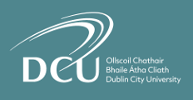This section will look at different forms of assessment in DCU. It will give you some practical ideas on how to prepare for them, and how to get the most out of them.
Background
Put simply, assessment is a type of commentary on the quality of your learning according to a set of pre-established criteria. It has two principal purposes: it can be used to ‘measure’ or grade your learning (knowledge, understanding, critical thinking ability, evaluation skills, etc.) but it can also be used as a way to encourage, support and improve your learning. Assessments are the means by which your tutors can gauge how you are progressing on your course, allow you to receive feedback, and can also provide the grades which will allow to move on to your next stage of study. Assessments generally fall into two categories: formative and summative.
In order to make sure that everyone is marked fairly, your tutors will use a set of criteria to mark against.
- Learning Outcomes outline WHAT you’re meant to know and be able to do by the end of a unit. An example of a learning outcome could be, ‘Apply organisational skills that will facilitate a time-efficient response to independent, directed studies, and team work.’
- Assessment Criteria identify HOW your tutor measures your work against defined Learning Outcomes. An example of assessment criteria might be, ‘An ability to communicate clearly and coherently in visual and verbal forms.’
The important point to remember is that all assessment can be used, to some extent, as a way of developing and improving your learning. Feedback on your completed assignments is the most obvious way that you can learn from assessment and this will be discussed in more detail later in this unit. Marks or grades can also be used to gauge your progress: if, for example, you get a number of incorrect answers on a multiple-choice test you will know that your ‘understanding’ of those questions needs some more work. In some cases it may be possible to get feedback on end of term exams.
How could this affect me?
Many students find assessments stressful, but you should remember that they are an important way for you to receive feedback, which will allow you to develop and improve your work, and to move forward.
It was difficult to hand in assignments on time and to present work in front of people.
(Finnish student)
Many autistic students told us that one of the main challenges with exams is to organise the time for revision – doing little by little over a longer period. Also, nerves can get in the way during the exam itself, especially when there are distracting noises in the room. Read our separate article on how to manage exams.
With coursework the challenges can be similar – organising your time so that you don’t have to rush things towards the deadline. But also knowing when to stop work on an assignment: getting regular feedback from a tutor on your work-in-progress is crucial here.
Reasonable adjustments
If you are struggling with assessments and have already disclosed your autism, you should speak to the Disability and Learning Support Service team in DCU. They may be able to suggest a reasonable adjustment be made, to enable you to participate in the assessment process. For example, a reasonable adjustment could be making a video presentation instead of presenting in person, or showing your work to the tutor in private, rather than in front of a group. Read more about arranging reasonable adjustments and how to work with your tutor on finding the most appropriate way of assessment for you.
What to do next?
Make sure that you are aware of what the Assessment Criteria are at the start of a project or unit.
Practical tips
Familiarise yourself with the ‘Learning Outcomes’ and ‘Assessment Criteria’ from your module/unit brief or handbook. Knowing these will allow you to stay focused and work towards specific targets.
Create opportunities for feedback so that you can continuously improve. Here is how:
- Make your work available for tutors and classmates; don’t hide away and isolate yourself.
- If you find it difficult to ask for feedback, think of ways that you might be able to receive it in an indirect way – maybe online through a blog or other social media.
- Try to accept feedback in a professional manner; don’t take it as a personal insult.
- Likewise, if you are giving feedback, keep it related to the work.
Make sure that you aware of deadlines for formative and summative assessments
- Use a calendar to prompt you a few days before a deadline, so that you have time to get everything ready.
- Allow enough time to get to wherever it is you need to be to hand your work in; always factor in public transport, traffic issues etc.
- If your assessed work is to be printed, make sure that you allow time in case of any technical issues with printers.
- Likewise, if you are giving a presentation, make sure that the projector works, and your presentation is in the correct format.
Finally, take note of any feedback and use opportunities for discussing any feedback that you receive. Many tutors will offer a tutorial after giving feedback, which will give you the opportunity to discuss any concerns, and ask for advice in moving forward.
Additional information and links
Types of Assessment in DCU
In DCU your final grade can be made up from final examinations as well as continuous assessment throughout term-time. There are many different types of assessment. Lecturers will vary in how they use continuous assessment and also in the kinds of assignments they give. You might be required to work alone, in pairs or in groups, or participate in online assignments.
Exams
Exams are one of the most commonly use method of assessment and are generally used as a means of summative assessment at the end of a module or course of study. In DCU, module co-coordinators are responsible for setting the exam paper for their modules in accordance with the regulations and guidelines set out by Registry. End of term exams can take many forms such as essay style questions or multiple choice questionnaires. Your lecturer will provide you with an idea of the structure of the exam in advance. It can be useful to look at past exam papers in the subject. You can access DCU past exam papers here.
Written Essays
This is also a common method of both continuous and summative assessment at university. The written assessment is set by the module coordinator and given to students at a relevant time during the course of the module. The type and style of essay required will be determined by the learning outcomes it intends to meet and the discipline for which it is being submitted. Typically lecturers will provide a choice of essay titles to the student to allow them to choose the topic that best suits their abilities or their interests. In DCU lecturers provide a continuous assessment outline which provides information in relation to structure and requirements as well as expectations of the students’ work. Weighting of marks and marking schemes should be clear and available to all students.
Click here to read a student learning resource written to help you when you might be struggling with your academic writing.
The Writing Centre in DCU offers one-to-one guidance with academic writing to all undergraduate and postgraduate students. The sessions provide students with the opportunity to receive expert advice from a peer tutor. Tutors are studying at PhD level and are trained and supervised by the DCU Student Learning team, who also provide sessions on occasion. Students may visit the Centre during any stage of the writing process: planning an assignment, writing a first draft, or revising and editing a document. Sessions are booked online and are free of charge. Click here for more information.
Portfolios and E-Portfolios
Portfolios are becoming more and more used as a method of assessment at third level and are an effective assessment for learning approach. The term portfolio refers literally to a collection of papers or artefacts and in the case of portfolios for assessment these are gathered with a view to demonstrating evidence of stated learning outcomes with clear guidelines for students on content and how it is graded.
An e-portfolio is a collection of artefacts gathered and managed by the user in web format. Artefacts can include text, uploaded files, images, multimedia, blogs and hyperlinks. The student determines how their site is displayed, the content it holds, and who can access it. When used for assessment, the student gives access to the lecturer and the layout and content are driven by the assessment brief and the learning outcomes that the portfolio assessment aims to fulfill.
Quizzes
Online quizzes are a useful means of formative assessment, particularly for large classes. The lecturer can set questions on specific areas of a course that may be difficult and require the student to go over a particular area of learning. Results are therefore also useful for the lecturer in evaluating any areas that need to be readdressed. Quizzes offer an alternative and fun method of learning and revision and allow the student to evaluate their own progress. Quizzes can be either online or in pen and paper format
Multiple Choice Questions (MCQ)
Students can be examined with an MCQ style exam or often exam papers may include a section of MCQ questions. An MCQ is a form of an objective assessment in which respondents are asked to select only correct answers from the choices offered as a list. MCQs typically involve negative marking which is a type of marking system where for every question you answer wrongly, you not only get no marks for that particular question but are also deducted extra marks from your previous total. Your lecturer will provide information on the type of marking that will be used.
Learning from Previous Work: Feedback and Reflection
Receiving feedback is often one of the most difficult aspects of being a student because it involves elements of vulnerability and judgement. And yet some of the most dramatic improvements in your work can be achieved by paying close attention to work which has been marked and graded already. Many students look at the grade or mark for their assignment, express satisfaction, surprise or annoyance, but never fully read the valuable comments on the work and the feedback sheet. When you are given back a piece of work read all of the comments very carefully. If possible make a list, first of the positive things which helped your mark, and then of the negatives which possibly reduced your mark. You can learn from both of these types of feedback.
If a lecturer does not provide written feedback with your grade they would be more than happy to meet with you to give you feedback in person.
Here is a list of some further reading if you are interested in learning more about any of these areas:
About the author
This article was written by Jackie Hagan, Learning Support Coordinator at the University for the Creative Arts at Rochester and later adapted to include information specific to DCU.


 Back
Back 
